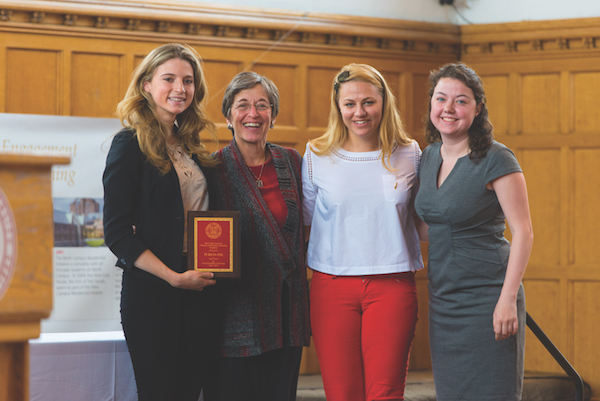alumnae advisory committees
Alumnae Advisory Committee members shape the future of the Fraternity by sharing experiences and expertise with collegians and helping them to understand policy and implement programs.
Alumnae Advisory Committee members shape the future of the Fraternity by sharing experiences and expertise with collegians and helping them to understand policy and implement programs.
Pi Phi was the first women’s fraternity to recognize the value of using its alumnae to give guidance and counsel to active chapters. As early as 1908, it was recommended Pi Phi alumnae living near a chapter should have contact with the chapter at least once per month.
On June 21, 1913, Grand Council authorized an amendment to the Constitution and Statutes, providing the formation of Alumnae Advisory Committees (AAC). The amendment included provisions “that for each active chapter there shall be an advisory committee of five from the nearest chartered alumnae club” and that committee shall supervise in the areas of scholarship, house management, general social conditions, the publication of Fraternity news and the Panhellenic situation.
The June 1914 Arrow contained several reports on the concept. The Minneapolis and St. Paul, Minnesota, Alumnae Club reported: “Our chapter advisory committee has been interested and conscientious in solving the problems which have come to it. As the work of this committee becomes better defined and organized, it will be of great service to the Fraternity.”
In 1922, Grand Vice President Anna Robinson Nickerson, Massachusetts Alpha, compiled a “Manual for the Use of Alumnae Advisory Committees.” It proved to be of inestimable value. By the mid-1920s, AACs became required to meet with the chapter’s Executive Council to review and approve the list of candidates eligible for initiation. By the 1930s, AACs were also named official counselors in the areas of recruitment and development of New Members.
Today, though AAC job titles and duties have evolved over the years, the duties of mentoring and guiding active members remain unchanged.

